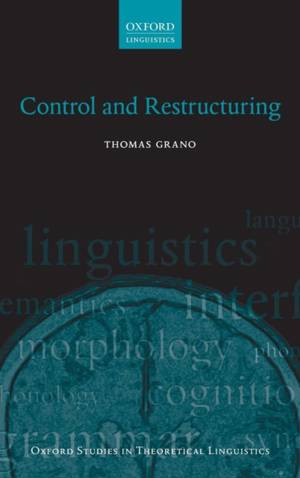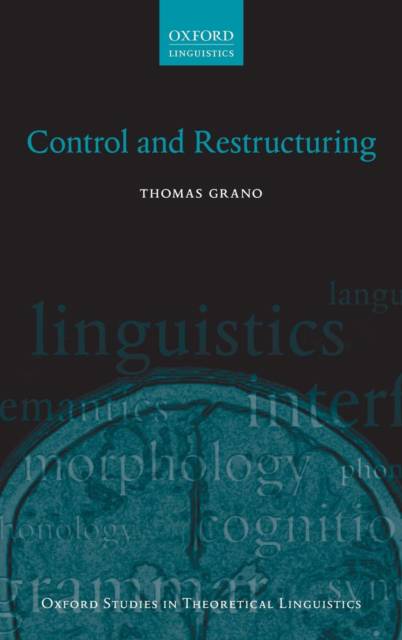
- Afhalen na 1 uur in een winkel met voorraad
- Gratis thuislevering in België vanaf € 30
- Ruim aanbod met 7 miljoen producten
- Afhalen na 1 uur in een winkel met voorraad
- Gratis thuislevering in België vanaf € 30
- Ruim aanbod met 7 miljoen producten
Zoeken
Omschrijving
This book investigates the phenomenon of control structures, configurations in which the subject of the embedded clause is missing and is construed as coreferential with the subject of the embedding clause (e.g. John wanted to leave). It draws on data from English, Mandarin Chinese, and Modern Greek to investigate the relationship that control bears both to restructuring - the phenomenon whereby some apparently biclausal structures behave as though they constitute just one clause - and to the meanings of the embedding predicates that participate in these structures. Thomas Grano argues that restructuring is cross-linguistically pervasive and that, by virtue of its co-occurrence with some control predicates but not others, it serves as evidence for a basic division within the class of complement control structures. This division is connected to how the semantics of the control predicate interacts with general principles of clausal architecture and of the syntax-semantics interface. His findings have general implications both for clausal structure and for the relationship between form and meaning in natural language.
Specificaties
Betrokkenen
- Auteur(s):
- Uitgeverij:
Inhoud
- Aantal bladzijden:
- 260
- Taal:
- Engels
- Reeks:
Eigenschappen
- Productcode (EAN):
- 9780198703921
- Verschijningsdatum:
- 26/05/2015
- Uitvoering:
- Hardcover
- Formaat:
- Genaaid
- Afmetingen:
- 163 mm x 234 mm
- Gewicht:
- 521 g

Alleen bij Standaard Boekhandel
+ 451 punten op je klantenkaart van Standaard Boekhandel
Beoordelingen
We publiceren alleen reviews die voldoen aan de voorwaarden voor reviews. Bekijk onze voorwaarden voor reviews.











